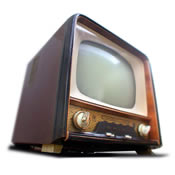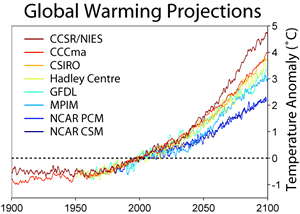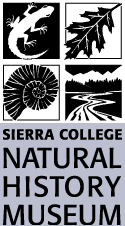Where Do You Get Your Science?
by Keely Carroll
Professor, Biological Sciences, Sierra College
Who makes your scientific decisions for you? I don’t mean just the type of decisions that are being made by scientists working at the Large Hadron Collider, but what about the scientific decisions that affect your day-to-day life. When you stand in the pain relief aisle at the grocery store and try to make a decision on which product to buy, what sort of information are you basing your decision on? When you go to see your doctor to get a prescription, have you ever suggested the medication that he or she place you on to treat your illness? Why? Are you a doctor? For better or for worse we are a more educated society than ever before. Why, you might ask, would being more educated be a bad thing? It depends, to a certain extent, on where you are getting your information from.
Primary Sources of Information About Science
In 2008 I came across a graphic printed in Science News based upon a University of Chicago, National Opinion Research Center poll that asked adults in the United States what their primary source of information was about science and technology (Science News June 7, 2008). The survey found that 39% of those surveyed got their science and technology information from television, 23% got their information from the internet, 11% from the newspaper, 10% from magazines, 7% from other print sources, 2% from radio, 2% from family and 2% from friends or colleagues.
Though it shouldn’t have, these numbers surprised me. I felt “aren’t people supposed to get their information from scientists, those working in the field” but then I realized, having read a scientific paper or two in my past that, scientists can be pretty boring. It makes logical sense that people would seek out information on science from sources other than those scientists. Getting back to that decision that you made about which medication to purchase, chances are that you bought that item based upon what you learned about it from the media or a friend and not from a scientist who actually studied the medication itself. Why should that be a problem? We will get back to that in a moment.
Student Exercises
There is an exercise that I sometimes have my students participate in that I would like you to try right now. Stop for a moment and picture in your head what a scientist looks like. Just a run-of-the-mill scientist. What did you see? If you are anything like my students, you probably pictured a man, with unkempt hair, wearing a lab coat and with a slight look of madness upon his face as though he felt that scientific discovery were the most important thing in the world, principles be damned.
I also do a similar experiment in another class where I ask my students to draw pictures of an environmentalist. The composite picture that I typically get from this assignment is a person (gender here seems to not be significant) who is wearing sandals, smells bad, eating granola, in the forest and hugging a tree. These stereotypes of scientists and environmentalists tend to come from two places: our background beliefs and what we have been told about those types of people. Again, why should that be a problem? Outside of the potential of insult, there are additional problems that can arise but we will get back to that too.
There is one last exercise that I would like to share with you. I ask my students to take out a piece of paper and write all of the words that they think of when they hear the name Charles Darwin. It depends on the class but in addition to terms like “evolution” and “scientist”, I get words like, “against religion”, “demon” and “Nazi”. Why does this matter? Why does it matter that we have any preconceived ideas about scientists, environmentalists and Darwin? Because it can affect our ability to understand and/or hear what those people are trying to tell us.
Who Was Darwin Anyway?
Who was Charles Darwin, really? He was the son of a physician, a grandson of a Member of Parliament who had his degree in Divinity from Christ College at Cambridge. Darwin started out his scientific career as a creationist but after his famed voyage on the Beagle and conducting additional research he realized that species do indeed evolve. Darwin was so concerned about how his theory on evolution would be received that he didn’t publish it for more than a decade. Darwin couldn’t have been more prescient. Today, less than 40% of people in the United States believe in the theory of evolution. 
If you ask someone why they don’t believe in evolution, some will reply that it conflicts with their religious beliefs, some say they just don’t know enough about the theory and still others suggest that the flaw with the theory lay with Darwin himself. Early attempts to discredit evolutionary theory were often based in the notion that Darwin himself or those who believed in his theory were either dolts or a demons. Political cartoons of the day portrayed Darwin as a half-ape/half-man.
A book sold at the trial of Scopes vs. The State of Tennessee, in 1925, which was one of the first test cases on the teaching of evolution in schools, stated: “The Germans…were angels compared to the teachers, paid by our taxes, who feed our children’s minds with the deadly, soul-destroying poison of Evolution.” Much of people’s feelings about the theory during that time came from what they read in the papers or from what they heard from others, not the scientists.
Media - Yesterday and Today
Today, 150 years after the publication of the theory of evolution, we find that the majority of information that people get about science continues to come from the media in one form or another. What has changed since then is that the media of today is vastly different than the media when the Scopes trial occurred. Today, we have a plethora of media outlets to choose from and while, many of them claim to be unbiased in their reporting, most of us watching those outlets would beg to differ.
It is all too easy today to select a media outlet that fits with your own view of the world, whatever that view might be. Don’t believe in evolution? We have a station for that. Believe that the earth is undergoing catastrophic climate change? We have a station for that. Today where two people, both equally educated on a subject from their chosen media outlets are able to argue their side based upon the information that they gleaned from those sources.
Why Does It Matter?
So why does it really matter where we get our scientific information from? Well, if you are using the media as your sole source of information when making a decision on which pain reliever to purchase, you probably will be all right. One brand of ibuprofen is probably not that intrinsically different than another. If you are using the media as your sole source of information on which type of prescription medication to take, maybe that is more of an issue, especially if you are trying to decide which cancer treatment is best for you.
Would you prefer your doctor make his or her decision based upon scientific evidence or from the advertisements that they watched or just from the information that the pharmaceutical representative gave them? Today some media outlets report that there is a legitimate scientific reason to teach intelligent design in schools along side evolution. If we just listened to these sources, we might believe that intelligent design is a scientifically valid theory, when, in fact, it has not been tested using scientific principles and no data on this idea has ever been published in a peer-reviewed journal. Is that something that is going to affect your life? Probably, when you consider that much of our research into medications are based, in part, on studies from evolutionary science.
News or Just Opinions?
Are these outlets lying to you? Not exactly. In some cases these media programs might appear to be the news when in fact they are opinion shows. In other situations news programs might report most of a story but leave out pertinent details.  Some media news outlets report that there is a debate about whether or not climate change is happening today. Is there an actual debate? No.
Some media news outlets report that there is a debate about whether or not climate change is happening today. Is there an actual debate? No.
Scientists who study climate and other geological sciences are unified in their assertion that climate change is real and that humans are accelerating the process. Those reporters are able to report that there is a debate about climate change because a very small fraction of scientists, which includes nearly no climatologists and have disciplines unrelated to the field such as kinesiology, have suggested that climate change is not occurring. If we were to use that report as our sole source of information, then we might vote for representatives who shared those views, we might try to fight legislation to prevent climate change, we might not make any lifestyle changes to prevent this process. The consequences of those decisions could affect your life as the climate of the earth changes over time and we get more floods, fires and loss of species.
Consider the Source
I am not suggesting that we abandon all media sources of scientific information and stick to only reading scientific journals (unless you are really sleep deprived), but I am suggesting that perhaps we need to view those sources with more of a critical eye. It seems that lately I have been hearing the quote from Upton Sinclair more and more often that “It is difficult to get a man to understand something when his job depends on him not understanding it.”
If your chosen media outlet gets more viewers when they portray a message in a particular way, then perhaps you need to look beyond that source for your scientific information. Change the channel. Read articles on the subject from more than one source. Think about whether or not the outlet that you are getting your information from stands to benefit from your sharing of their point of view. By being critical thinkers perhaps we can still use the media as a source of scientific information.
So long as we realize that the information given to us may be playing to our own background beliefs on the subject, may only be part of the story, or may be a distortion of the facts to get more viewers. When we realize that, perhaps we will look deeper into the information and make better scientifically minded decisions, decisions that will better serve our health, our community and our world.
